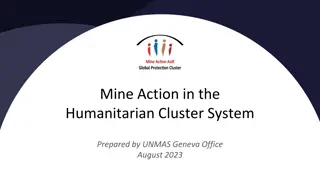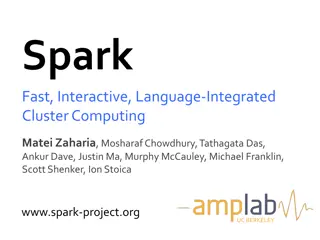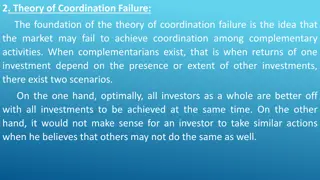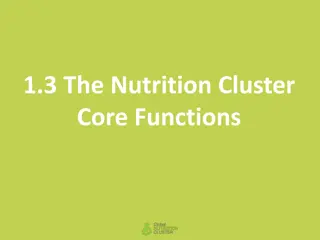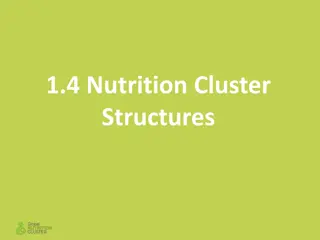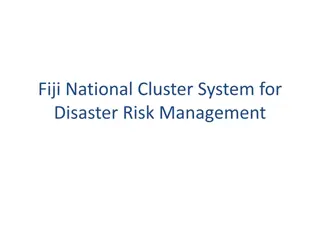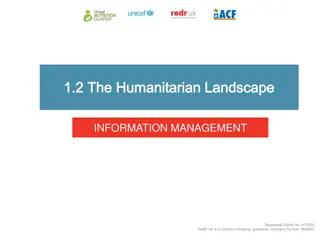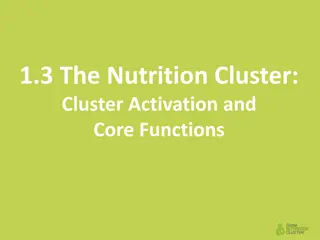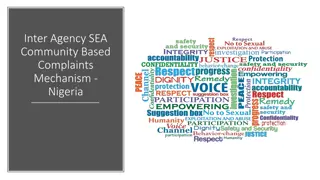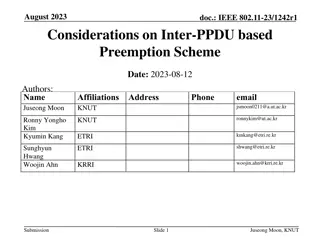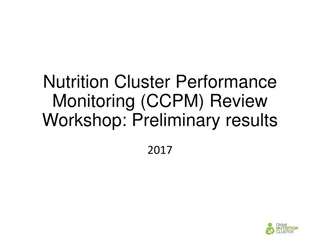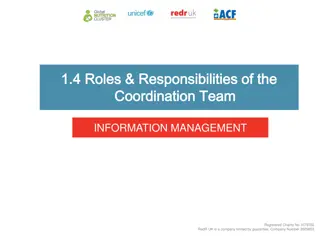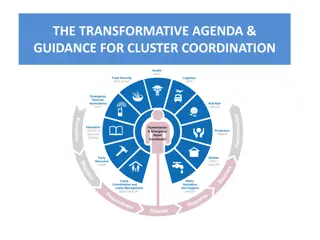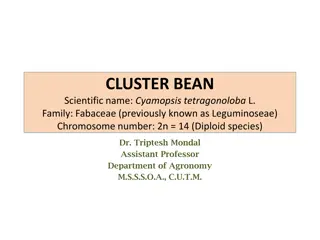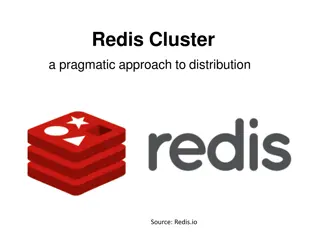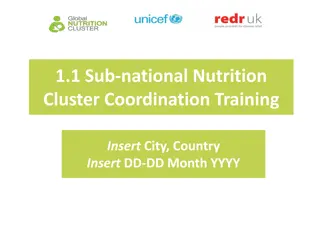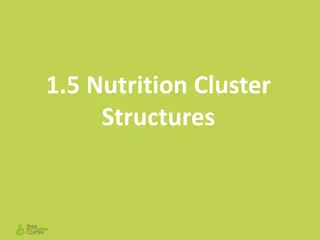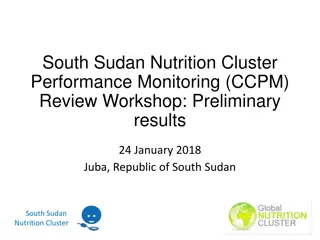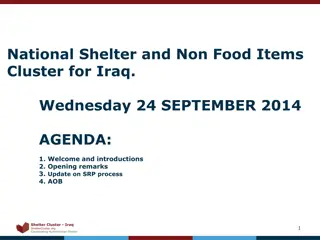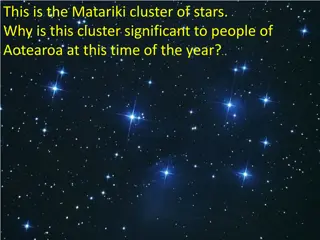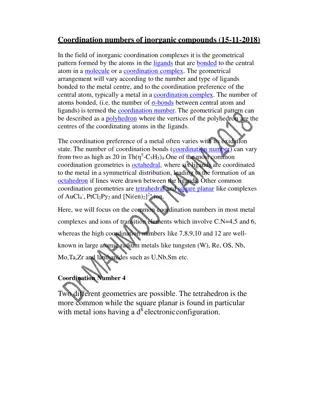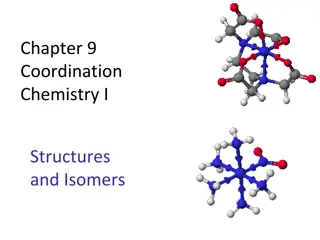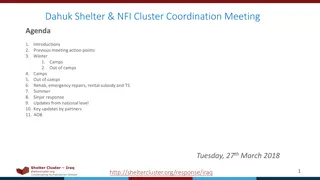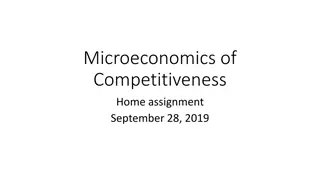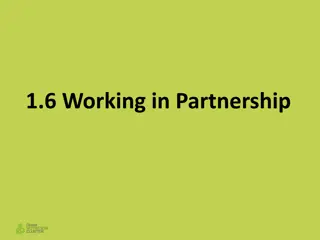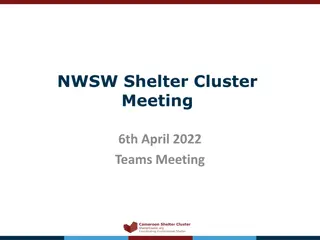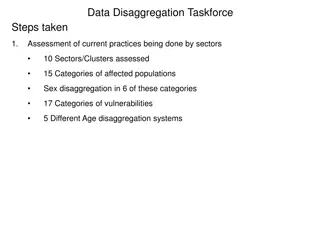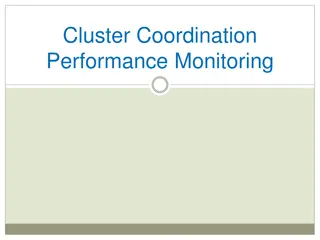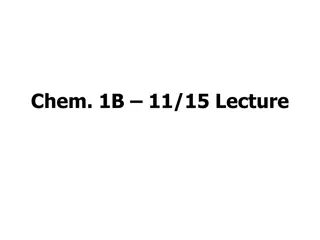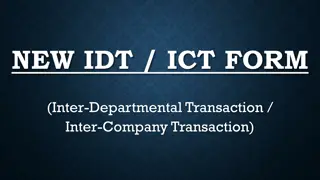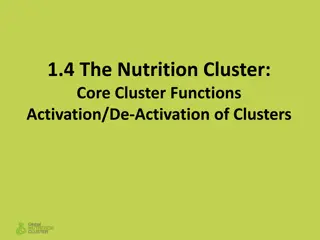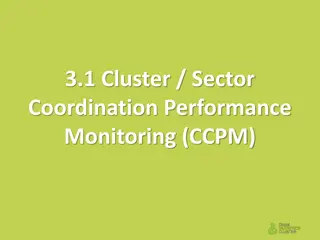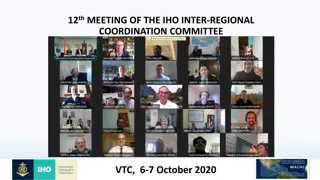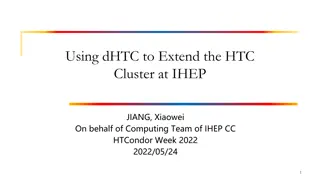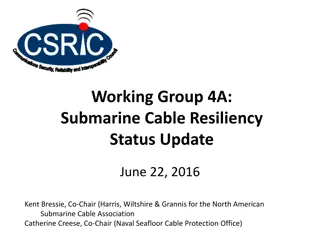Mine Action in the Humanitarian Cluster System
The Inter-Agency Standing Committee (IASC) plays a crucial role in coordinating humanitarian efforts, with a focus on mine action in the global protection cluster. This involves clear responsibilities, strategic planning, and advocacy to address humanitarian needs. The IASC Reference Module for Clus
3 views • 18 slides
Guidelines for Upholding Rights of LGBTQ
In light of evolving societal norms and the imperative to safeguard the rights and dignity of LGBTQ individuals and inter-faith\/inter-caste couples, the Supreme Court has given guidelines for the handling of habeas corpus petitions and petitions for police protection.\nBackground:\nRecent instance
9 views • 4 slides
Understanding Apache Spark: Fast, Interactive, Cluster Computing
Apache Spark, developed by Matei Zaharia and team at UC Berkeley, aims to enhance cluster computing by supporting iterative algorithms, interactive data mining, and programmability through integration with Scala. The motivation behind Spark's Resilient Distributed Datasets (RDDs) is to efficiently r
0 views • 41 slides
Wood Innovation Cluster: Driving Regional Growth and Development in the Wood Industry
The Wood Innovation Cluster, established in 2018 in Skellefte municipality, brings together key stakeholders in the wood industry to foster regional growth and development. It coordinates research, development, education, and testing activities while promoting sustainable procurement. Through collab
0 views • 4 slides
Understanding the Theory of Coordination Failure in Markets
The theory of coordination failure explores how markets may struggle to achieve coordination among complementary activities, leading to suboptimal outcomes. It highlights scenarios where investors' actions depend on each other, emphasizing the role of government intervention to solve coordination is
2 views • 14 slides
Nutrition Cluster Core Functions Overview
The content provides a detailed overview of the core functions of the Nutrition Cluster, focusing on objectives, core functions, group work activities, and explanations on supporting service delivery, informing strategic decision-making, and advocacy. It highlights the importance of cluster coordina
1 views • 19 slides
Understanding Nutrition Cluster Structures and Coordination Roles
Explore the diverse structures and roles of actors within nutrition clusters at various levels, from global to sub-national. Learn about the responsibilities of key players such as Cluster Coordinators, Information Managers, and Technical Working Groups. Discover the government's role in the nutriti
3 views • 18 slides
Fiji National Cluster System for Disaster Risk Management
The Fiji National Cluster System for Disaster Risk Management emphasizes the importance of coordination in emergencies, aiming to reduce gaps and overlaps through a coherent, complementary approach. Global Cluster coordination systems have been adopted to enhance collaboration among various humanita
1 views • 22 slides
Understanding Humanitarian Landscape and Coordination Challenges
The humanitarian landscape involves various organizations working together to provide assistance during crises. Coordination challenges, such as identifying needs, existing assistance, and government involvement, have been prevalent. The Inter-Agency Standing Committee (IASC) was established in 1991
1 views • 21 slides
Guidelines for Media Reporting on Gender-Based Violence: Roles and Functions of GBV Sub-Cluster
Comprehensive guidelines for media reporting on Gender-Based Violence (GBV) covering the roles and responsibilities of the GBV Sub-Cluster, the coordination structure, functions of the GBV Sub-Cluster, and basic concepts of GBV including different forms of violence. The document emphasizes the impor
2 views • 36 slides
Inter-Cluster Coordination and Information Management in Humanitarian Emergencies
Inter-Cluster Coordination and Information Management play vital roles in humanitarian emergencies. The coordination mechanism involves regular meetings convened by the RC/HC and coordinated by OCHA, providing opportunities for clusters to collaborate on shared planning, needs assessments, and poole
2 views • 13 slides
Understanding the Nutrition Cluster Activation and Core Functions
Exploring Level 3 emergencies, the process of cluster activation and deactivation, and the core functions of the Nutrition Cluster at the country level. Learn about the criteria for cluster activation, gaps in response, and the strategic approach to humanitarian system-wide emergency activation. Dis
2 views • 21 slides
Inter-Agency SEA Community Based Complaints Mechanism in Nigeria
The Inter-Agency SEA Community Based Complaints Mechanism in Nigeria facilitates safe and confidential reporting of complaints, particularly related to sexual exploitation and abuse (SEA), by beneficiaries. Through inter-agency coordination, this mechanism ensures effective collaboration, messaging,
1 views • 18 slides
Considerations on Inter-PPDU Based Preemption Scheme in IEEE 802.11-23
In this document, considerations are presented for a preemption scheme in IEEE 802.11-23, focusing on issues such as coordination, ACK transmission timing, and channel access fairness. The proposed inter-PPDU based preemption scheme aims to improve the transmission of low latency traffics within the
1 views • 12 slides
Nutrition Cluster Performance Monitoring (CCPM) Review Workshop Preliminary Results 2017
The Nutrition Cluster Performance Monitoring (CCPM) aims to ensure efficient coordination, identify areas for improvement, raise support awareness, and enhance transparency within the cluster. The process involves planning, conducting surveys, analysis, action planning, and monitoring. It does not m
1 views • 14 slides
Information Management Roles and Responsibilities in Disaster Response Coordination
The roles and responsibilities of the coordination team in disaster response include key positions such as Cluster Coordinator, Information Manager, GIS Mapping Specialist, and more. National governments play a crucial role in safety, security, and coordination efforts. Exercises are conducted to ag
0 views • 11 slides
Transformative Agenda and Guidance for Effective Cluster Coordination
Explore the transformative agenda and guidance for cluster coordination, emphasizing the roles of UNICEF as a cluster lead agency, core cluster functions, inter-cluster coordination, and management strategies for effective humanitarian response. Key focus areas include accountability, human financin
0 views • 19 slides
Overview of Cluster Bean (Cyamopsis tetragonoloba L.) - Uses, Distribution, and Classification
Cluster beans, scientifically known as Cyamopsis tetragonoloba L., are valuable leguminous crops with economic importance due to their drought tolerance and industrial applications, particularly in gum production. They are cultivated for feed, fodder, and vegetable purposes, with their seeds rich in
5 views • 14 slides
Understanding Redis Cluster Distribution Approach
Redis Cluster offers a pragmatic approach to distribution, connecting all nodes directly with a service channel. Each node communicates using a binary protocol, optimized for bandwidth and speed. Nodes do not proxy queries, and communication involves messages like PING, PONG, and Gossip. Hash slot k
0 views • 17 slides
Sub-national Nutrition Cluster Coordination Training Workshop
Welcome to the Sub-national Nutrition Cluster Coordination Training Workshop aimed at sharing key concepts, tools, and approaches for effective coordination of nutrition in emergencies. This training prepares participants for working in Nutrition Cluster/Sector Coordination, promoting dialogue and s
1 views • 10 slides
Understanding Nutrition Cluster Structures and Roles
Learn about the structures and roles within Nutrition Clusters at different levels, including the responsibilities of key actors such as the Cluster Coordinator, Information Manager, Strategic Advisory Group, and Technical Working Groups. Explore the involvement of governmental and non-governmental
0 views • 27 slides
Review of South Sudan Nutrition Cluster Performance Monitoring Workshop
Preliminary results from the South Sudan Nutrition Cluster Performance Monitoring (CCPM) Review Workshop held in Juba, Republic of South Sudan on 24th January 2018. The workshop aimed to ensure efficient coordination, identify areas for improvement, raise awareness of support needed, and strengthen
0 views • 18 slides
National Shelter and Non-Food Items Cluster for Iraq - Summary and Data Overview
The National Shelter and Non-Food Items Cluster meeting in Iraq on Wednesday, 24th September 2014 discussed various important agenda items including updates on the SRP process, strategic objectives, overview of cluster projects, types of assistance provided, and targeting vulnerable groups. A total
0 views • 7 slides
Understanding the Significance of Matariki Cluster in Aotearoa
Matariki, the cluster of stars, holds cultural importance in Aotearoa during this time of the year. As the tohunga, recognizing these seven stars and understanding the various ways to organize and locate Matariki is essential. It rises just before dawn, and identifying it involves looking for specif
0 views • 9 slides
Coordination Numbers in Inorganic Compounds: Geometries and Structures
In inorganic coordination complexes, the coordination number refers to the number of atoms bonded to the central atom. Common geometries include octahedral, tetrahedral, and square planar, depending on the type and number of ligands. Transition metal complexes exhibit different coordination numbers
2 views • 8 slides
Understanding Coordination Chemistry: Structures, Isomers, and Naming
Exploring coordination chemistry involves understanding structures, isomers, naming conventions, and common coordination numbers, all essential in studying coordination compounds. Coordination compounds consist of central metals, ligands, and charge balancing ions. Naming involves listing cations, l
0 views • 46 slides
Dahuk Shelter & NFI Cluster Coordination Meeting Agenda
The agenda for the Dahuk Shelter & NFI Cluster Coordination Meeting includes introductions, updates on previous meeting action points, discussions on winter camps and out-of-camps issues, rehabilitation efforts, and responses in camps and out-of-camps settings. Additionally, there will be updates on
1 views • 11 slides
Dutch Flower Cluster Competitiveness Analysis
Analyze the Dutch flower cluster's competitiveness through questions on its structure, sustainability, internationalization, and challenges. The report must focus on the reasons behind the cluster's success, its connections to global flower clusters, and recommendations for key stakeholders.
0 views • 5 slides
Nutrition Cluster Partnership Essentials
Discover the minimum commitments for engaging in the Nutrition Cluster, learn about partnership principles, and understand how these guide collaborative efforts within the cluster. Explore partner commitments, principles of partnership, and engage in an exercise to apply these concepts practically.
0 views • 7 slides
Shelter Cluster Meeting Updates and Strategies for Operational Coordination in Cameroon
Action points from the recent NWSW Shelter Cluster meeting on April 6, 2022 were discussed, including updates on partner collaboration, performance monitoring, and tool enhancements. The meeting also highlighted the importance of feedback regarding access issues and GBV mainstreaming in shelter inte
0 views • 10 slides
Data Disaggregation Taskforce: Assessment and Recommendations on Vulnerabilities
The Data Disaggregation Taskforce is conducting an assessment of current practices across sectors, assessing 10 sectors/clusters, 15 categories of affected populations, and identifying vulnerabilities in 17 categories. The Taskforce is working on harmonizing categories and finalizing recommendations
0 views • 6 slides
Exploring the Social Change & Campaigning Learning Cluster
This slide deck explores the Social Change & Campaigning Learning Cluster conducted by the Sheila McKechnie Foundation. It delves into the aims of the cluster, participants, new skills acquired, and next steps. The learning clusters were designed to go beyond one-day events, providing residents with
0 views • 29 slides
Understanding Cluster Coordination Performance Monitoring (CCPM)
The Cluster Coordination Performance Monitoring (CCPM) is a self-assessment tool that helps evaluate cluster performance against core functions and Accountability to Affected Populations. It aims to improve coordination and accountability within clusters, developed by the IASC Sub-Working Group. Mon
0 views • 16 slides
Understanding Coordination Complexes and Transition Metals
Today's lecture covers transition elements, coordination complexes, ligand types, geometries, naming, isomers, and bonding in coordination complexes. Transition metals form coordination complexes with metal ions, ligands, and counter ions. The types of ligands include monodentate and bidentate ligan
0 views • 24 slides
New IDT/ICT Form: Streamlining Inter-Departmental and Inter-Company Transactions
Streamline inter-departmental and inter-company transactions with the new IDT/ICT form. Easily transfer funds between different departments within the same company and across different companies. Two identical forms cater to Foundation and Philanthropic accounts, enhancing efficiency in financial pr
0 views • 13 slides
Nutrition Cluster Core Functions and Activation Strategies
The Nutrition Cluster aims to support service delivery, inform strategic decision-making, and plan and implement cluster strategies to address the needs and priorities of affected populations. Core functions include supporting service delivery, advocacy, capacity-building, and monitoring and evaluat
0 views • 19 slides
Cluster Sector Coordination Performance Monitoring (CCPM): Enhancing Gender Equality and GBV Protection
The CCPM framework allows for self-assessment of cluster performance in key areas like gender equality and protection against gender-based violence (GBV). It focuses on supporting service delivery with gender and inclusion considerations, strategic decision-making, gender-responsive strategy develop
0 views • 15 slides
International Hydrographic Organization Inter-Regional Coordination Committee Meeting Highlights
The 12th meeting of the IHO Inter-Regional Coordination Committee focused on various key agenda items, including reports on capacity building, education requirements, and initiatives for empowering women in hydrography. Discussions also covered ocean mapping activities, the Seabed 2030 Project, and
0 views • 9 slides
Extending IHEP's HTC Cluster Using dHTC
IHEP is extending its HTC cluster to accommodate the data processing needs of over 15 experiments in the field of high energy physics. The motivation behind this expansion includes the need for more resources, existing data processing limitations, and user preferences for local analysis. The cluster
0 views • 21 slides
Submarine Cable Resiliency Update and Recommendations
Working Group 4A provides updates on the status of submarine cable resiliency, highlighting the risks to infrastructure due to lack of coordination across agencies and clustering of cable routes. The group aims to enhance regulatory coordination and promote geographic diversity to ensure network res
0 views • 7 slides
